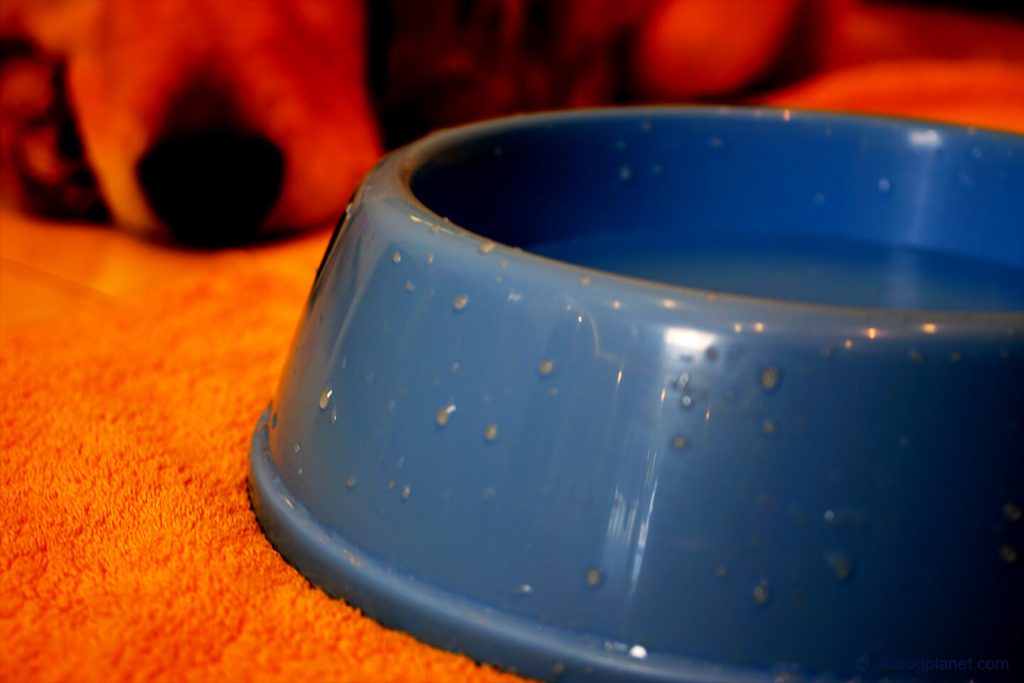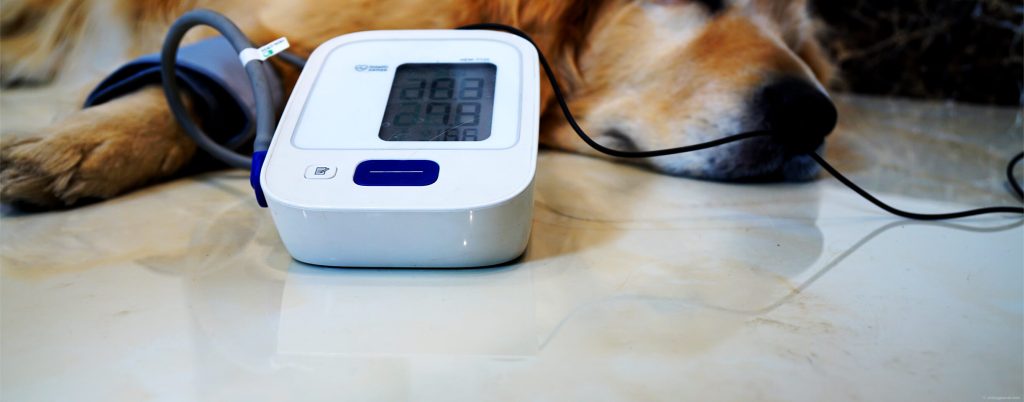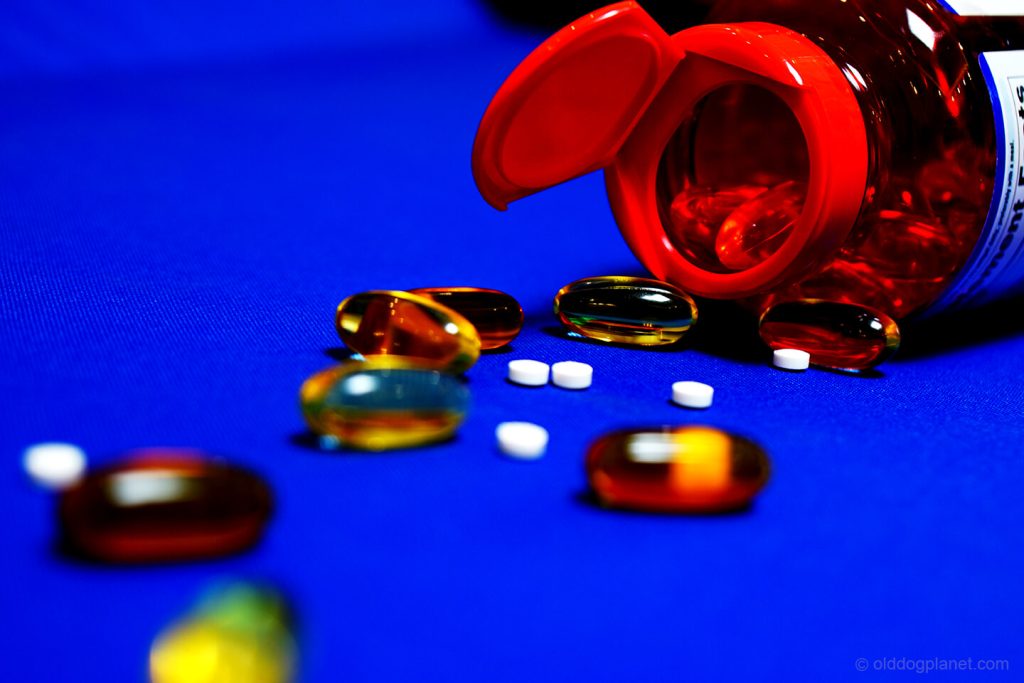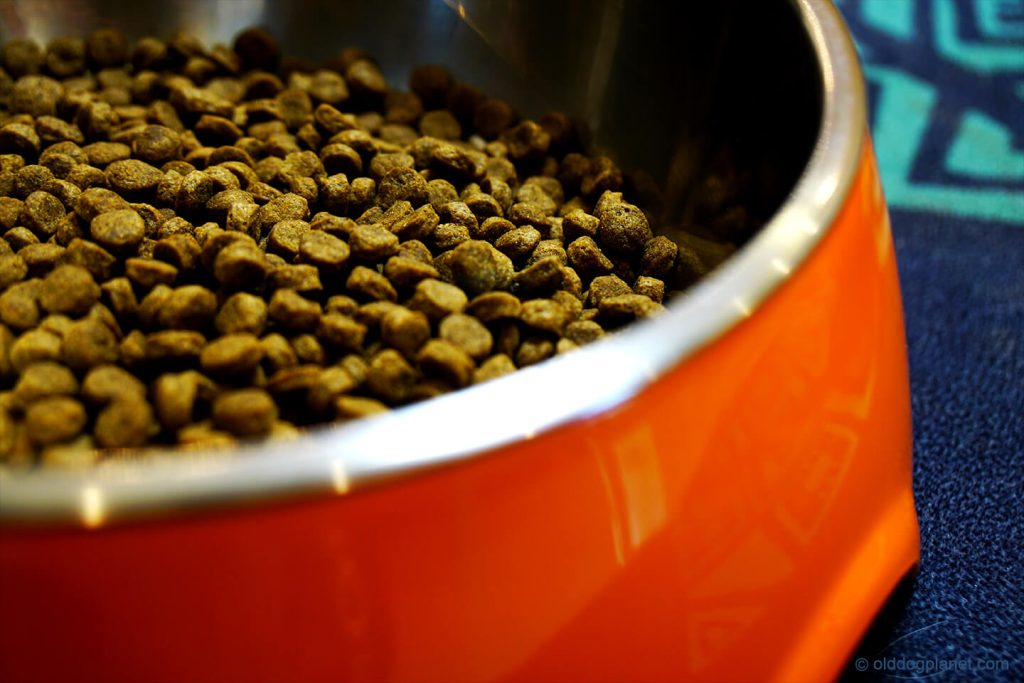When an old dog coughs after drinking water, it is often a harmless phenomenon if it occurs only occasionally, with the cough sounding like a dry cough that recovers quickly after the owner slaps the dog on the shoulder. Sometimes when your old pal is drinking water or eating, he or she may become distracted by something, causing it to choke and cough.
Diseases that can cause cough after drinking water
However, if your old dog coughs frequently after drinking water or even coughs every time it drinks water, it is likely to be a sign of tracheal defects, tracheal degenerative collapse or other disease, which are more likely to occur in small breeds and brachycephalic breeds, such as Bulldog, Chihuahuas, Pomeranians, Toy Poodles and Yorkshire Terriers.
Typical tracheal hypoplasia will have obvious symptoms of noisy breathing in puppies, whereas indeterminate cases of tracheal hypoplasia may not show obvious symptoms when the dog is young, but as the dog ages, the trachea will degenerate and the trachea defect will be magnified. When drinking water, the dog’s trachea cannot be completely covered, and some of the liquid will enter the trachea and cause choking.
The difference between cough caused by tracheal disease & heart disease
Sometimes people confuse a cough caused by a defect in the trachea with a cough caused by a heart attack, here are a few key differences:
- When dogs have heart disease, they can cough even without drinking water, especially at night.
- Dogs with heart disease will have some exercise intolerance and get tired easily.
- Dogs with heart disease will occasionally open their mouths to breathe and pant, and their spirits will not be very good.
If you suspect that your dog has a cough caused by trachea or heart problems, consult your vet as soon as possible.
What you shouldn’t do when your old dog coughs
Coughing is a natural defense mechanism for dogs, just like it is for humans. When foreign bodies or excessive secretions become attached to the respiratory tract, coughing can clean up the dirt through the rapid impact of the airstream, keeping the respiratory tract clean and unobstructed.
Suppressing a dog’s cough symptoms is not a wise choice until the specific cause of the dog’s cough is identified, as this tends to cover up the cause or even worsen the condition. Consult your vet as soon as possible if you notice your dog coughing frequently.
How to stop dog coughing after drinking water?
Rather than suppressing the symptoms of cough, you’d better change the way your dog drinks water immediately, whether before taking your dog to the vet or after the vet’s diagnosis and treatment, to keep your old dog safe from choking and coughing. Here is some advice:
- Please stop giving drinking water directly to the dog, including the use of a water bowl, a water dispenser, feeding syringe or other similar methods.
- Determine the daily water requirement for the dog based on its weight.
If a dog is fed AAFCO-compliant dog food and does not have diabetes, kidney disease, urinary infections or other diseases, it requires 0.85-1.75 US fl oz of water per pound of body weight, or 50-100ml per kilogram of body weight per day. I’ve included a table of drinking water requirements for various body weights below. You can plan your dog’s drinking water supply based on its weight.
- Fill the daily ration of drinking water in a bottle or other safe and clean container. Distribute drinking water to your dog daily from this container only.
- Rehydrating kibble. (It is also a good way to avoid flatulence. Please refer to this blog post to learn more about it)
Take a portion of the drinking water to soak the kibble 1 hour before your dog’s daily meal time. Wait for the kibble to go fully hydrated and swelled, and then let your dog replenish a portion of the daily required amount of water by eating the saturated and absorbent kibble.- You can soak kibble in hot water to speed up the rehydrating process by about 30 minutes.
- Dog food can usually absorb at least the same weight of water as dog food (some kibble can even absorb twice their own weight of water).
- Different dog foods absorb water at different rates, and you must keep trying to find the perfect water-to-kibble ratio so that the kibble absorbs all of the water added without leaving a single drop behind.
- Normally, a dog consumes 1.3-20 Oz (37-570g) of kibble per day (1.3 Oz/37 g for small breed, 20 Oz/570 g for giant breed), which can only absorb about 40-1200ml of water. let’s take “Purina ONE SmartBlend Vibrant Maturity 7+ Adult Formula” as an example:
- Rehydrating fluffy and less dense bread.
- The water absorbed by kibble often does not fully meet the dog’s daily drinking needs, so we need to replenish your dog in other ways.
- Soft and porous bread can absorb several times its mass of water, which is a very good choice.
- It should be noted that bread is also a good source of starch, protein and other nutrients, and eating too much bread may cause the dog’s daily nutrient intake to exceed, leading to obesity and other problems.
- Cucumber.
- Cucumber is a vegetable with the highest water content, up to 96.7%, which can well replenish the water that dogs need.
- Cucumber is also one of the vegetable with the lowest calories in the world, with only 16 kcal/100 grams.
- With low calories, zero fat, zero sugar and nearly zero sodium, cucumbers are perfectly safe source of hydration for dogs.
- It is important to note that when using cucumbers as part of the water supplement, please pour out the same weight of water as the cucumbers in the container to ensure that the dog’s total daily drinking water is constant.




